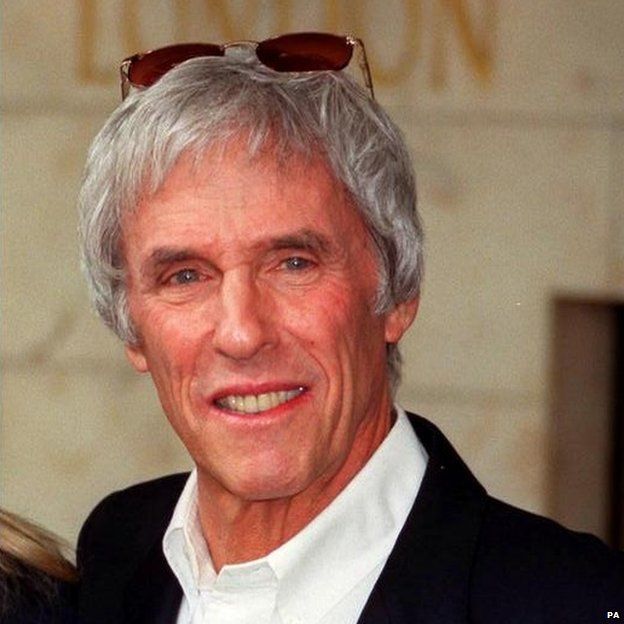ARTICLE AD BOX
 Image source, PA
Image source, PA
Burt Bacharach was one of the last of the great popular songwriters of the 20th Century.
Together with Hal David, he created songs that became standards in their own right.
They were classy, catchy, commercial and musically complex, and scores of them became hits during a career that lasted more than 50 years.
His songs transcended the rock era; never fashionable but never out of fashion.
Burt Freeman Bacharach was born in Kansas City, Missouri, in 1928 but grew up in New York, where his father was a well-known newspaper columnist.
He developed an interest in jazz as a teenager, often blagging his way into many of New York's jazz clubs while technically under age.
He studied music in Montreal and California and found himself hanging out with composer John Cage, who was a major influence.
Image source, NASA
Image caption,By the end of the 1960s Bacharach had written dozens of hits
Bacharach did his army service in Korea and, when he returned to civilian life, he found work as a composer and arranger, writing songs for a host of performers, including actress and singer Paula Stewart, whom he later married.
At one stage in the late 1950s and early 1960s, he accompanied Marlene Dietrich, as she took her cabaret act around Europe and the United States.
By then, he had teamed up with the lyricist David. They met at the famous Brill Building in New York, just north of Times Square on Broadway, where scores of music publishers and popular songwriters had offices.
They had their first big hits in 1957 and 1958 - The Story of My Life, recorded by Marty Robbins, and Magic Moments, sung by Perry Como, which went to No 1 in the UK.
Enduring
As the 1960s dawned, it seemed the duo could do no wrong as they produced hit after hit for a string of well-known artists. Gene Pitney recorded 24 Hours From Tulsa, The Walker Brothers had a hit with Make It Easy on Yourself and Dusty Springfield charted with I Just Don't Know What to Do With Myself.
Inspired by his second wife, actress Angie Dickinson, Bacharach wrote songs for the cinema, including Raindrops Keep Fallin' on My Head, from Butch Cassidy and the Sundance Kid, and the eponymous Alfie, which was a hit for Cilla Black.
The latter gained an Oscar nomination for best song, as did the theme for What's New Pussycat, recorded by Tom Jones, and The Look of Love, a hit for Dionne Warwick.
Image source, Rex Features
Image caption,Cilla Black was one of many artists who had hits with Bacharach songs
It was with Warwick, a singer the pair had hired to cut demo records, that the duo enjoyed their most successful and enduring collaboration.
Starting with Don't Make Me Over in 1962, she recorded a string of almost 40 Bacharach and David hits over the next 10 years, including Walk On By, Do You Know the Way to San Jose? and I'll Never Fall in Love Again.
By the beginning of the 1970s, Bacharach and David had written more than 100 songs but their partnership was unravelling. A musical version of the 1937 film Lost Horizon was a costly flop. and generated a number of lawsuits. Bacharach's partnership with David broke up.
Cleverness
His marriage to Angie Dickinson was also in trouble and his music less in demand.
But Bacharach made a comeback in the 1980s, writing hits like the theme song for the film Arthur with his third wife, Carole Bayer Sager.
Together they went on to write Making Love for Roberta Flack, That's What Friends Are For, sung by Dionne Warwick, and songs for Gladys Knight, Neil Diamond and Patti Labelle.
Much younger songwriters, like Noel Gallagher of Oasis, expressed admiration for Bacharach's music and others wanted to work with him.
Performing at Glastonbury in 2015
He collaborated with Elvis Costello and rapper Doctor Dre, and also appeared on screen (as himself) in the Austin Powers films.
In June 2015, Bacharach performed on stage at the Glastonbury Festival to a rapturous welcome.
The sheer familiarity of Bacharach's music meant the cleverness of much of it was sometimes overlooked: it was dismissed as "elevator music" or "easy listening".
But a typical Bacharach composition was rhythmically complex, often wrong-footing the listener with sudden changes of time signature and irregular phrasing.
The harmonies were sometimes unconventional (Bacharach was said to have been influenced by the bebop jazz of his youth) and he excelled at producing the soaring musical hook that sticks in the mind and refuses to leave.
Above all, his songs are musically sophisticated and they invited sophisticated interpretations from his singers - one reason, perhaps, why later generations of songwriters positively revered him.
Related Internet Links
The BBC is not responsible for the content of external sites.

 1 year ago
134
1 year ago
134








 English (US)
English (US)